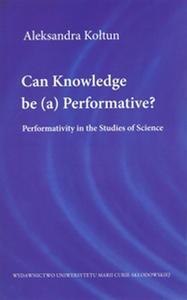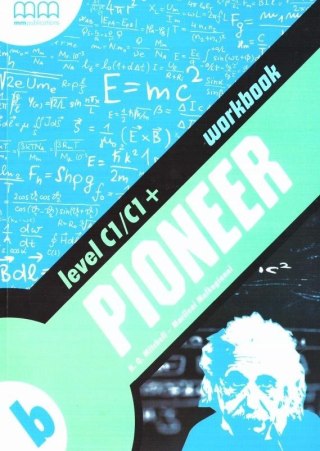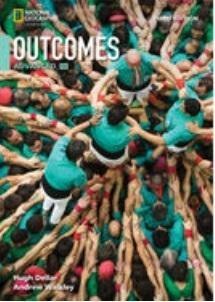Koszyk (0)
Koszyk jest pusty
Do bezpłatnej dostawy brakuje
-,--
Darmowa dostawa!
Suma
0.00 zł
Cena uwzględnia rabaty
Strona korzysta z plików cookies zgodnie z Polityką Cookies w celu realizacji usług. Korzystanie z witryny oznacza, że będą one umieszczane w Twoim urządzeniu końcowym. Możesz określić warunki przechowywania lub dostępu do plików cookies w Twojej przeglądarce.
-
Kategorie
-
Artykuł szkolne i papiernicze
- Bloki
- Cienkopisy
- Cyrkle
- Długopisy
- Druki i formularze
- Dziurkacze
- Farbki
- Flamastry
- Glina
- Globusy
- Gumki
- Kalkulatory
- Kleje
- Koperty
- Korektory
- Kostki, bloczki samoprzylepne
- Kosze
- Kreatywne
- Kreda
- Kredki
- Linijki
- MAGNESY
- Makijaż
- Markery
- Masy plastyczne
- Naklejki
- Notatniki
- Nożyczki
- Okładki
- Ołówki
- Organizery
- Pamiętnik
- Papeteria
- Papier kancelaryjny
- Papier kolorowy
- Papier ksero
- Pędzelki
- Pinezki, spinacze, zszywki
- Pióra
- Piórniki
- Planery
- Plany lekcji
- Plastelina
- Plecaki
- Pomoce Naukowe
- Segregatory
- Skoroszyty
- Skorowidze
- Stempelki
- Szablony
- Tablice
- Taśmy
- Teczki
- Tekstylia
- Temperówki
- Tuby
- Tusze
- Worki na buty
- Zakładki do książek
- Zakładki indeksujące
- Zakreślacze
- Zestawy
- Zestawy szkolne
- Zeszyty
- Zszywacze
-
Audiobooki
- Bajki
- Baśnie
- Biografie
- Dla dzieci
- Dla młodzieży
- Dzienniki, pamiętniki
- Ekonomia i biznes
- Fantastyka, fantasy
- Felietony
- Historia
- Horror
- Kryminał
- Lektury
- Literatura faktu, reportaż
- Literatura polska
- Obyczajowa
- Opowiadania
- Podróże
- Poradniki
- Powieść
- Proza
- Przygodowa
- Psychologia
- Psychologia, Socjologia
- Religia
- Romans
- Sensacja
- Dla dzieci i młodzieży
- Gry planszowe
-
Języki obce
- Albański
- Angielski
- Arabski
- Białoruski
- Chiński
- Chorwacki
- Czeski
- Duński
- Estoński
- Filipiński
- Francuski
- Grecki
- Gruziński
- Hebrajski
- Hindi
- Hiszpański
- Holenderski
- Indonezyjski
- Islandzki
- Japoński
- Koreański
- Litewski
- Łaciński
- Łotewski
- Macedoński
- Niderlandzki
- Niemiecki
- Norweski
- Ormiański
- Perski
- Polski
- Portugalski
- Rosyjski
- Rumuński
- Serbski
- Słowacki
- Słoweński
- Szwedzki
- Tajski
- Turecki
- Ukraiński
- Węgierski
- Wietnamski
- Włoski
-
Lego®
- Animal Crossing
- Architecture
- Art
- Avatar
- Batman
- Boost
- City
- Classic
- Creator
- Disney
- Disney Princess
- Dots
- Dreamzzz
- Duplo
- Elves
- Flowers
- Friends
- Functions
- Harry Potter
- Gabby's Dollhouse
- Icons
- Ideas
- Indiana Jones
- Juniors
- Jurassic World
- MARVEL
- Mickey and Friends
- Mindstorms
- Minecraft
- Minions
- Ninjago
- Lego Dodatki
- Opakowania Zbiorcze
- Speed Champions
- Star Wars
- Super heroes
- Super Mario
- Technic
- Trolls
- Vidiyo
- Nagrodówka2024
-
Literatura
- Aforyzmy
- Antropologia
- Archeologia
- Architektura
- Astrologia
- Astronomia
- Biografie
- Biznes
- Czasopisma
- Dla dorosłych
- Dokument
- Dramat
- Dzienniki, pamiętniki
- Ekologia
- Ekonomia
- Ekonomia i biznes
- Erotyka
- Eseje
- Etyka
- Ezoteryka
- Fantastyka
- Felietony
- Film
- Filozofia
- Finanse
- Historia
- Historyczne
- Hobby
- Horror
- Humanistyka
- Humor
- Informatyka
- Inne
- Językoznawstwo
- Języki obce
- Klasyka obca
- Komiks
- Kryminał
- Kulinaria
- Kultura
- Legendy
- Listy
- Literatura faktu, reportaż
- Literaturoznawstwo
- Logistyka
- Malarstwo
- Marketing
- Medioznawstwo
- Medycyna
- Militaria
- Motoryzacja
- Muzyka
- Nauka i technika
- Nauki humanistyczne
- Obyczajowa
- Opowiadania
- Opowieść
- Pamiętnik
- Pedagogika
- Podróże
- Poezja
- Poezja, dramat
- Polityka, Politologia
- Popularnonaukowa
- Poradniki
- Powieść
- Prawo
- Proza
- Proza współczesna
- Przewodniki
- Przygodowa
- Psychiatria
- Psychologia
- Publicystyka
- Reklama
- Religia
- Romans
- Senniki
- Sensacja
- Socjologia
- Sport
- Sztuka
- Thriller
- Ukraińska
- Wiersze
- Wojenne
- Wspomnienia
- Wywiady
- Zarządzanie
- Zdrowie
- Zdrowie i uroda
- Zwierzęta
- Literatura szkolna
- Podręczniki
-
Puzzle
- Akcesoria
- Baby puzzle
- Dla najmłodszych
- Edukacyjne
- Od 10 do 60 elementów
- Przestrzenne
- Sensoryczne
- Zestawy
- 104 elementy
- 500 elementów
- 1000 elementów
- 70 elementów
- 80 elementów
- 100 elementów
- 108 elementów
- 120 elementów
- 150 elementów
- 160 elementów
- 180 elementów
- 200 elementów
- 250 elementów
- 260 elementów
- 300 elementów
- 600 elementów
- 2000 elementów
- 1500 elementów
- 3000 elementów
- 4000 elementów
- 6000 elementów
- Komiksy
- Książki na prezent
-
Artykuł szkolne i papiernicze
- Nowości
- Polecamy
- Lektury szkolne
- Nagrody Szkolne 2024
- Wyprzedaże do -90%
- Kontakt
-
Kategorie
-
Bloki
-
Cienkopisy
-
Cyrkle
-
Długopisy
-
Druki i formularze
-
Dziurkacze
-
Farbki
-
Flamastry
-
Glina
-
Globusy
-
Gumki
-
Kalkulatory
-
Kleje
-
Koperty
-
Korektory
-
Kostki, bloczki samoprzylepne
-
Kosze
-
Kreatywne
-
Kreda
-
Kredki
-
Linijki
-
MAGNESY
-
Makijaż
-
Markery
-
Masy plastyczne
-
Naklejki
-
Notatniki
-
Nożyczki
-
Okładki
-
Ołówki
-
Organizery
-
Pamiętnik
-
Papeteria
-
Papier kancelaryjny
-
Papier kolorowy
-
Papier ksero
-
Pędzelki
-
Pinezki, spinacze, zszywki
-
Pióra
-
Piórniki
-
Planery
-
Plany lekcji
-
Plastelina
-
Plecaki
-
Pomoce Naukowe
-
Segregatory
-
Skoroszyty
-
Skorowidze
-
Stempelki
-
Szablony
-
Tablice
-
Taśmy
-
Teczki
-
Tekstylia
-
Temperówki
-
Tuby
-
Tusze
-
Worki na buty
-
Zakładki do książek
-
Zakładki indeksujące
-
Zakreślacze
-
Zestawy
-
Zestawy szkolne
-
Zeszyty
-
Zszywacze
-
Bajki
-
Baśnie
-
Biografie
-
Dla dzieci
-
Dla młodzieży
-
Dzienniki, pamiętniki
-
Ekonomia i biznes
-
Fantastyka, fantasy
-
Felietony
-
Historia
-
Horror
-
Kryminał
-
Lektury
-
Literatura faktu, reportaż
-
Literatura polska
-
Obyczajowa
-
Opowiadania
-
Podróże
-
Poradniki
-
Powieść
-
Proza
-
Przygodowa
-
Psychologia
-
Psychologia, Socjologia
-
Religia
-
Romans
-
Sensacja
-
Albański
-
Angielski
-
Arabski
-
Białoruski
-
Chiński
-
Chorwacki
-
Czeski
-
Duński
-
Estoński
-
Filipiński
-
Francuski
-
Grecki
-
Gruziński
-
Hebrajski
-
Hindi
-
Hiszpański
-
Holenderski
-
Indonezyjski
-
Islandzki
-
Japoński
-
Koreański
-
Litewski
-
Łaciński
-
Łotewski
-
Macedoński
-
Niderlandzki
-
Niemiecki
-
Norweski
-
Ormiański
-
Perski
-
Polski
-
Portugalski
-
Rosyjski
-
Rumuński
-
Serbski
-
Słowacki
-
Słoweński
-
Szwedzki
-
Tajski
-
Turecki
-
Ukraiński
-
Węgierski
-
Wietnamski
-
Włoski
-
Animal Crossing
-
Architecture
-
Art
-
Avatar
-
Batman
-
Boost
-
City
-
Classic
-
Creator
-
Disney
-
Disney Princess
-
Dots
-
Dreamzzz
-
Duplo
-
Elves
-
Flowers
-
Friends
-
Functions
-
Harry Potter
-
Gabby's Dollhouse
-
Icons
-
Ideas
-
Indiana Jones
-
Juniors
-
Jurassic World
-
MARVEL
-
Mickey and Friends
-
Mindstorms
-
Minecraft
-
Minions
-
Ninjago
-
Lego Dodatki
-
Opakowania Zbiorcze
-
Speed Champions
-
Star Wars
-
Super heroes
-
Super Mario
-
Technic
-
Trolls
-
Vidiyo
-
Aforyzmy
-
Antropologia
-
Archeologia
-
Architektura
-
Astrologia
-
Astronomia
-
Biografie
-
Biznes
-
Czasopisma
-
Dla dorosłych
-
Dokument
-
Dramat
-
Dzienniki, pamiętniki
-
Ekologia
-
Ekonomia
-
Ekonomia i biznes
-
Erotyka
-
Eseje
-
Etyka
-
Ezoteryka
-
Fantastyka
-
Felietony
-
Film
-
Filozofia
-
Finanse
-
Historia
-
Historyczne
-
Hobby
-
Horror
-
Humanistyka
-
Humor
-
Informatyka
-
Inne
-
Językoznawstwo
-
Języki obce
-
Klasyka obca
-
Komiks
-
Kryminał
-
Kulinaria
-
Kultura
-
Legendy
-
Listy
-
Literatura faktu, reportaż
-
Literaturoznawstwo
-
Logistyka
-
Malarstwo
-
Marketing
-
Medioznawstwo
-
Medycyna
-
Militaria
-
Motoryzacja
-
Muzyka
-
Nauka i technika
-
Nauki humanistyczne
-
Obyczajowa
-
Opowiadania
-
Opowieść
-
Pamiętnik
-
Pedagogika
-
Podróże
-
Poezja
-
Poezja, dramat
-
Polityka, Politologia
-
Popularnonaukowa
-
Poradniki
-
Powieść
-
Prawo
-
Proza
-
Proza współczesna
-
Przewodniki
-
Przygodowa
-
Psychiatria
-
Psychologia
-
Publicystyka
-
Reklama
-
Religia
-
Romans
-
Senniki
-
Sensacja
-
Socjologia
-
Sport
-
Sztuka
-
Thriller
-
Ukraińska
-
Wiersze
-
Wojenne
-
Wspomnienia
-
Wywiady
-
Zarządzanie
-
Zdrowie
-
Zdrowie i uroda
-
Zwierzęta
-
Akcesoria
-
Baby puzzle
-
Dla najmłodszych
-
Edukacyjne
-
Od 10 do 60 elementów
-
Przestrzenne
-
Sensoryczne
-
Zestawy
-
104 elementy
-
500 elementów
-
1000 elementów
-
70 elementów
-
80 elementów
-
100 elementów
-
108 elementów
-
120 elementów
-
150 elementów
-
160 elementów
-
180 elementów
-
200 elementów
-
250 elementów
-
260 elementów
-
300 elementów
-
600 elementów
-
2000 elementów
-
1500 elementów
-
3000 elementów
-
4000 elementów
-
6000 elementów
Artykuł szkolne i papierniczeAudiobookiJęzyki obceLego®LiteraturaPuzzle -
- Nowości
- Polecamy
- Lektury szkolne
- Nagrody Szkolne 2024
- Wyprzedaże do -90%
- Kontakt
-
- Szukaj
- Moje konto
- Ulubione
-
Koszyk
0
-
Koszyk (0)Koszyk jest pustyDo bezpłatnej dostawy brakuje -,--Darmowa dostawa!Realizuj zamówienieSuma 0.00 złCena uwzględnia rabaty
-



Can Knowledge be (a) Performative?
Symbol:
9788377847268
Dostępność:
4
szt.
![]()
27.43
Zamówienie telefoniczne: 791572838 Zostaw telefon
Wysyłka w ciągu:
3 dni
Cena przesyłki:
7.99
- Odbiór osobisty 0
- DPD Pickup punkt odbioru / automat paczkowy 7.99
- Paczkomaty InPost 12.99
- Kurier DPD 14.99
- Kurier INPOST 14.99
- Kurier DPD Pobranie 19.99
Więcej o produkcie
Autor:
Aleksandra Kołtun
Wydawnictwo:
UMCS
Stron:
160
Rok wydania:
2015
Oprawa:
broszurowa
Format:
15x24 cm
Waga
0.15 kg
Kod kreskowy:
EAN:
9788377847268
Autor:
Aleksandra Kołtun
Wydawnictwo:
UMCS
Stron:
160
Rok wydania:
2015
Oprawa:
broszurowa
Format:
15x24 cm
-
Polecamy
-
Produkty podobne
30.85
124.95
![[{[item.product.name]}]]([{[item.product.photo.url]}] 75w)

















